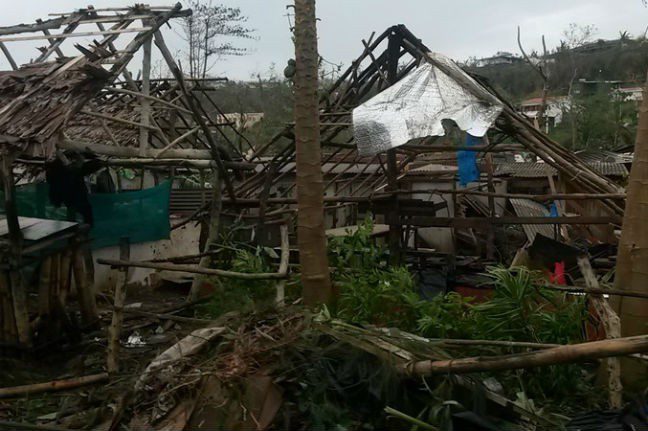By Ben Murphy, Humanitarian Advocacy Coordinator, Oxfam Australia.
Just days after the President of Vanuatu almost broke down as he spoke of the devastation that Tropical Cyclone Pam had inflicted upon his nation, the mood is bittersweet at the closing of the Third World Conference on Disaster Risk Reduction (DRR) in Sendai, Japan.
The last few days have been dominated by tense, hard fought negotiations throughout the day and night between 186 governments, all aimed at producing a new 15-year global framework to build resilience and reduce vulnerability to disasters.
For much of the last few days, it looked as if we might not get an outcome at all.
Finally this late evening, many hours behind schedule, governments did reach an agreement, the Sendai Framework for Disaster Risk Reduction 2015-2030. But sadly, it’s a framework that largely fails to protect the world’s poor from the growing risks of disasters.
Vulnerability and exposure to hazards is rising around the globe. Exacerbated by climate change, disasters are increasingly pushing people into deeper poverty and compromising their safety.
Exacerbated by climate change, disasters are increasingly pushing people into deeper poverty and compromising their safety.
That’s why the framework agreed today is so disappointing for Oxfam and many other organisations working with communities affected by disasters around the world. What we needed in Sendai was a bold and ambitious new agreement on DRR. Instead, what we got was a set of half-measures and business-as-usual commitments that won’t keep pace with increasing global risks.
The new framework does feature a stronger emphasis on the impact of disasters on vulnerable groups such as women, people with disabilities and the elderly, and highlights their role as agents of change in strong and effective risk reduction efforts. This is a critical commitment that Oxfam will be actively supporting to implement and also to hold governments accountable to in the coming years.
But the framework does little to galvanize bold action or create meaningful accountability. In particular, the seven targets that form the core of the agreement are flimsy and unambitious, placing little real pressure on governments to demonstrate significant improvements in reducing disaster risk.
Wealthy countries also failed to make concrete commitments around additional financial and technical support to developing countries, which have less capacity to absorb and recover from disaster losses. As many of the most disaster prone countries are developing ones, they are simply unable to finance all the needed measures on their own.
Both increased aid from rich countries and increased financial contributions from disaster-prone developing countries themselves are critical to ensuring comprehensive implementation of DRR measures on the ground, where it matters most.
Today we are dismayed, but not discouraged. More than ever before, we need to increase pressure on governments and others to seriously invest in protecting lives, livelihoods, environments and economies from hazards. Although they’re modest, there are some positive elements in this framework, and we need to hold governments to account for these commitments.
We also need to ensure that the low levels of ambition shown here in Sendai do not set the tone for other major international agreements this year on poverty reduction, development and climate change. We know that disaster risk, climate and sustainable development are intrinsically connected issues – but unfortunately the Sendai Framework makes only weak references to the importance of linking efforts across all these areas.
As world leaders negotiate two further vital agreements this year – the Sustainable Development Goals in September and an ambitious new global climate change agreement in Paris in December – we’ll need to see much stronger commitments, backed up by concrete funding pledges.
Disaster risk reduction forms an absolutely critical dimension of these two agreements and must be fully integrated and resourced. For the sake of millions at growing risk from hazards around the globe, we cannot fail.
You can help support Oxfam’s response to Cyclone Pam. Please give generously.

